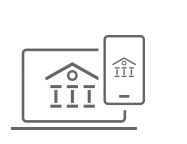Mortgage insurance should not be confused with mortgage life insurance, which is designed to pay off a mortgage in the event of a borrower's death. Mortgage insurance makes it possible for you to buy a home with less than a 20% down payment by protecting the lender against the additional risk associated with low down payment lending. Low down payment mortgages are becoming more and more popular, and by purchasing mortgage insurance, lenders are comfortable with down payments as low as 3 - 5% of the home's value. It also provides you the ability to buy a more expensive home than might be possible if a 20% down payment were required.
The mortgage insurance premium is based on loan to value ratio, type of loan, and amount of coverage required by the lender. Usually, the premium is included in your monthly payment and one to two months of the premium is collected as a required advance at closing.
It may be possible to cancel private mortgage insurance at some point, such as when your loan balance is reduced to a certain amount - below 75% to 80% of the property value. Recent Federal Legislation requires automatic termination of mortgage insurance for many borrowers when their loan balance has been amortized down to 78% of the original property value. If you have any questions about when your mortgage insurance could be cancelled, please contact your Mortgage Banking Officer.

